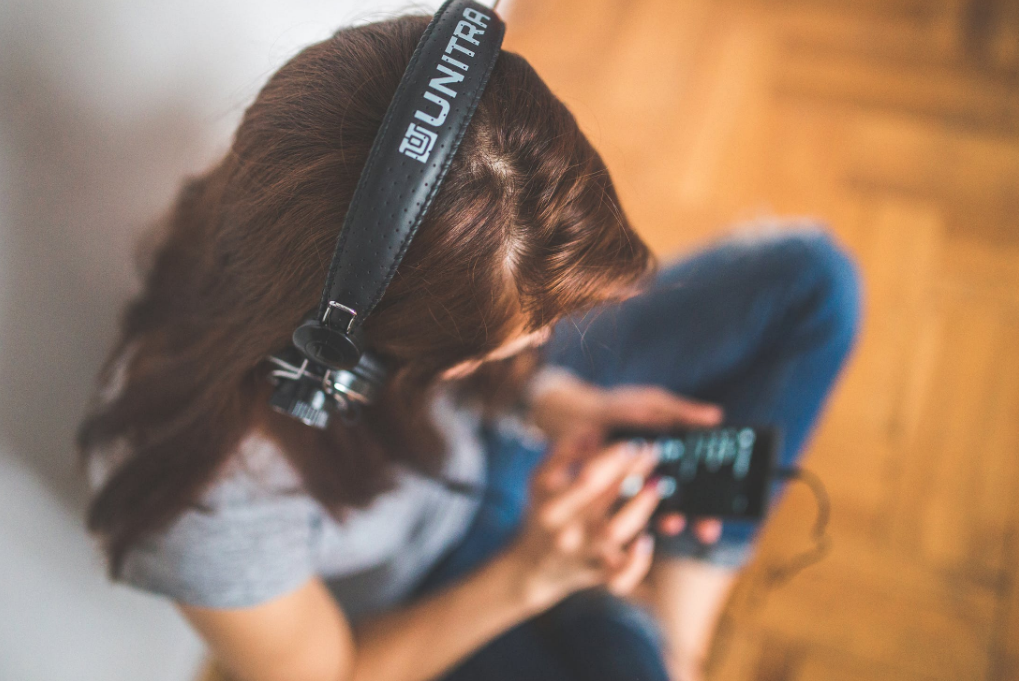The New Art of Reading: Audiobooks
The New Art of Reading: Audiobooks

Flashback to 50 years ago, how many people would have thought you’d be able to listen to the latest bestseller while doing chores or commuting to work?
The love of reading has brought us to this reality. A reality where there are no rules as to how a book should be read. Audiobooks are the new reading.
Audiobooks
So, what exactly is an audiobook? Unless you’ve been living under a rock, there’s a big chance you already know the answer to this question.
If we put it simply, audiobooks are ‘talking books’. A recording of a book or other works read out out loud – think of podcasts. There can be two versions of an audiobook, unabridged or abridged. The reading of the complete text is called the unabridged version and the reading of the shorter version is called the abridged.
One of the best things about audiobooks is the massive library right at your fingertips. For example, Audible (Amazon’s bestselling audiobook app with a monthly subscription) has over 120,000 titles as of 2019 – a number that’s only growing. If you want to know more, check out this in-depth Audible review.
Even though most die-hard readers might consider audiobooks as ‘cheating reading’, the sales patterns show a different tale. Audiobooks have been gaining popularity in recent years with sales showing no signs of slowing down. In contrast, the sales of physical books and e-readers have been flat for some time.
But, should there really be a competition between reading and audiobooks? Isn’t it similar to taking two different routes that lead to the same destination?
Brain Chemistry
To answer the question above, some bookworms might say no but our brain doesn’t agree. A recent study shows that reading and listening to a book might not be that different when it comes to your brain’s chemistry.
Regardless of the medium, your brain registers the meaning of words the same way, be it reading or listening. The same regions of the brain are activated and process the words in a similar way whether you’re reading or listening. Researchers created the auditory and visual input of the brain from both sets of data and found the result to be almost indistinguishable.
Comprehension
Even if our brain registers the meaning of the words similarly, the way we comprehend the information while reading and listening are different.
When we read something, we’re filling our blank minds with the symbols from the pages. The scenes, the sounds, the smells – it’s all a manifestation of what your mind relays from the plot. You can turn back the pages and read over and over again until you understand the gist and make it your own.
That’s not the case with audiobooks. You can’t turn the pages at your whim. Instead, you need to focus on what you’re hearing to get the gist the first time. This is a great practice in building up your ability to focus.
And, let’s face it, our world has become a place of constant distraction with every ping of the email and every flash of the phone screen. In the midst of all these distractions, the ability to focus is a much-needed skill.
Pronunciations
If you’re learning a second language, we cannot stress the importance of audiobooks enough. For an advanced second language speaker, audiobooks can teach the correct pronunciations more easily than a textbook can.
Or, say you have fallen in love with the main character of a book while reading. The next thing you do is comb through the internet for tidbits, take quizzes, watch videos of the author and yikes! You’ve been pronouncing the name wrong all this time.
Perhaps you’ve been talking about the character non-stop in your book club and nobody corrected you. An easy way to save yourself from awkward situations is to get yourself an audiobook with the perfect narrator.
Audiobooks are great for kids too, particularly kids with dyslexia or mental challenges. Audiobooks can build up a habit of reading and help them to learn in an entertaining way.
Emotional Response
Not many of us read books just to pass the time, we read because we love books. Books can transport our minds from the mundane and help us live a thousand lives. It’s safe to say that books can trigger a strong emotional response in us.
Audiobooks are proven to intensify these emotional responses. A social experiment has uncovered that a narrator with the perfect vocal nuances can trigger a listener’s emotional response and make them feel the sarcasm, sadness, and happiness like they’re living it. And, only a human voice can elicit a reaction that strong.
But, reading a physical book can also be a very personal experience. You see every situation and you understand every plot in your own way. Your inner voice is at the helm and gives life to the book. How amazing is that?
Audiobooks or reading books?
The answer to the question above, we would say both.
Audiobooks and physical books both have their pros and cons. They’re perfect for different situations.
Don’t want anyone to know what you are reading in a public place? Audiobook. Want to make new like-minded friends? Physical book. Want to read a book and also mow the lawn? Audiobook. Want to relax at home and unwind? Physical book. The list goes on and on. And the choice is yours!





